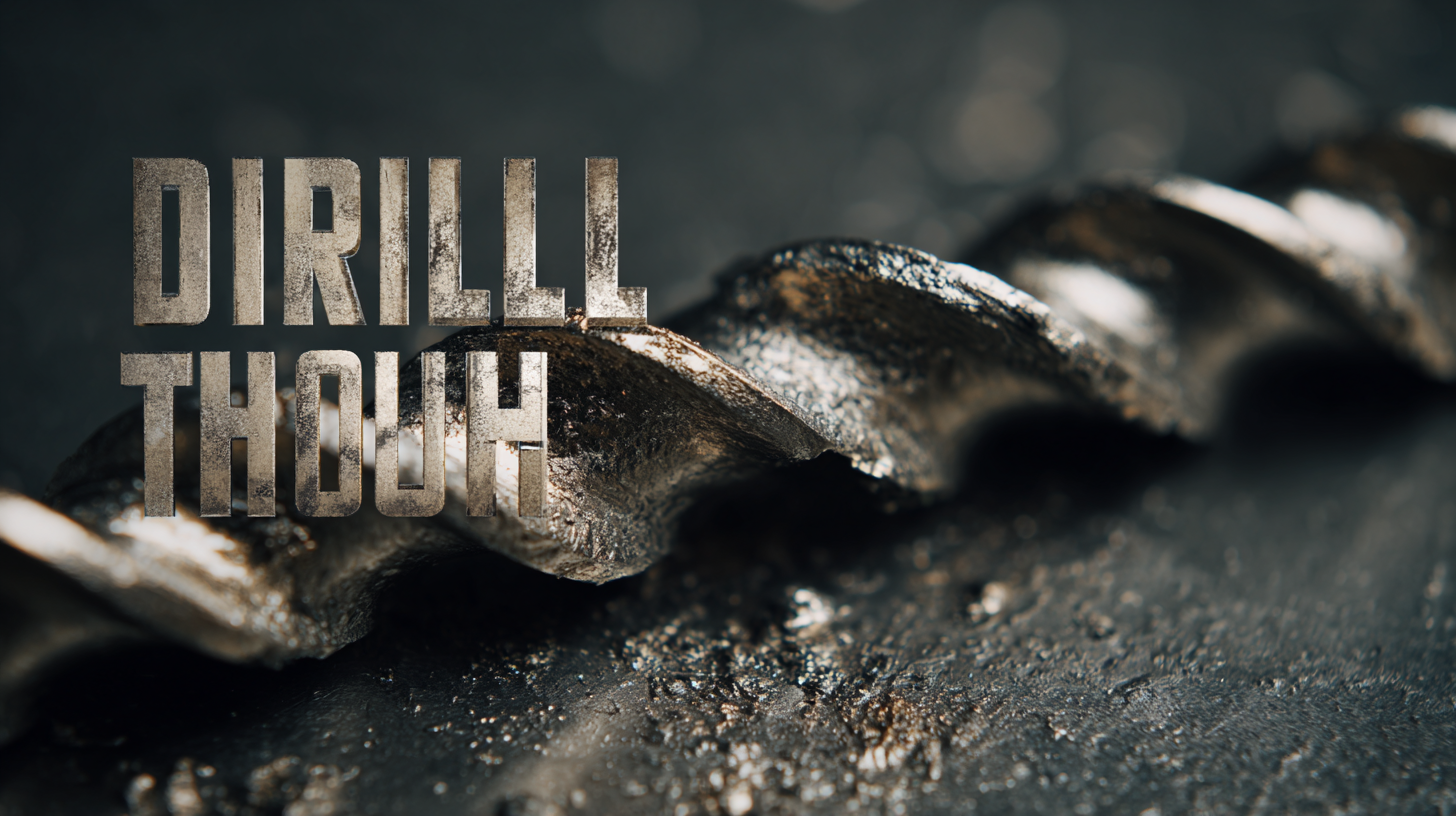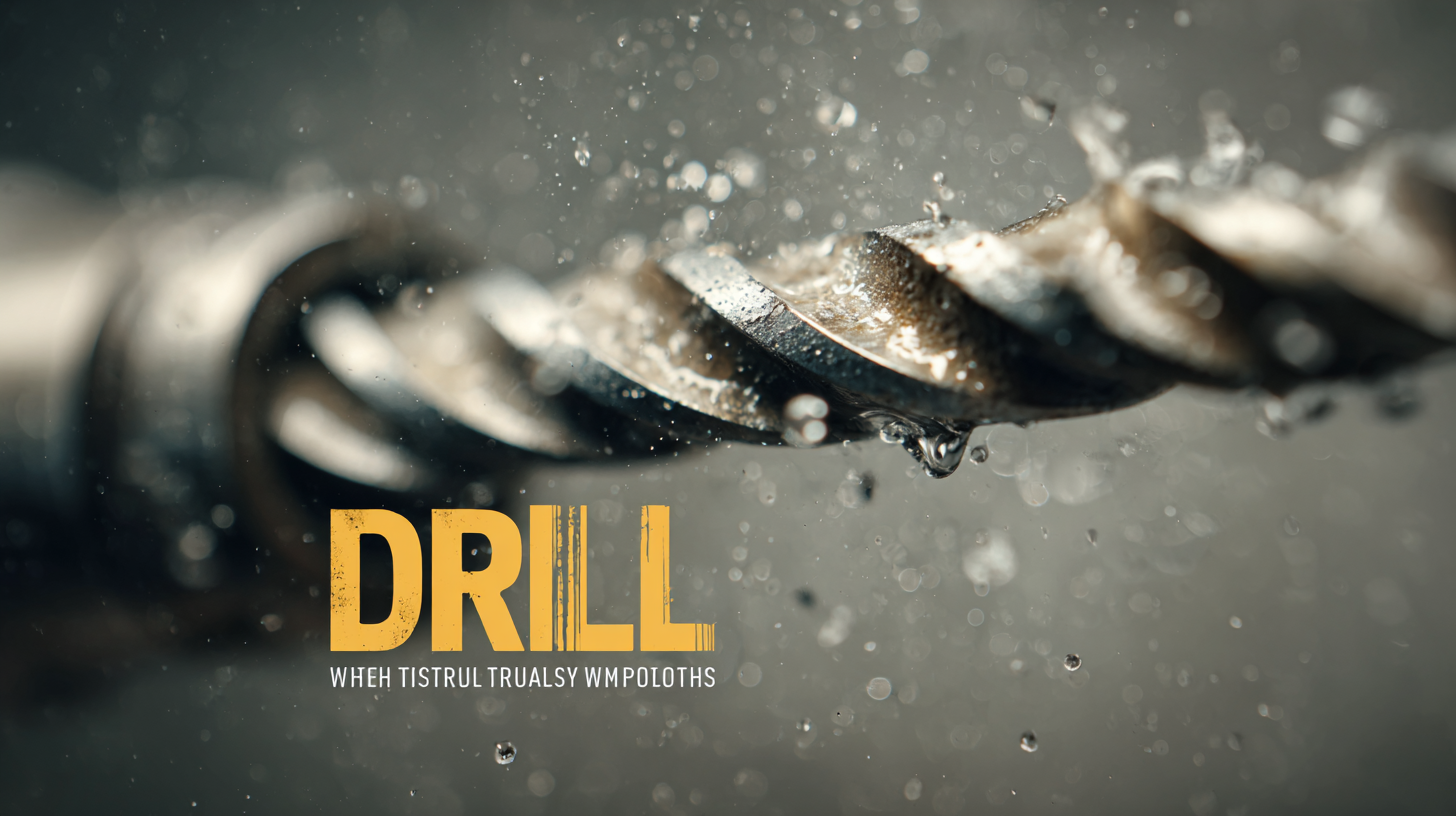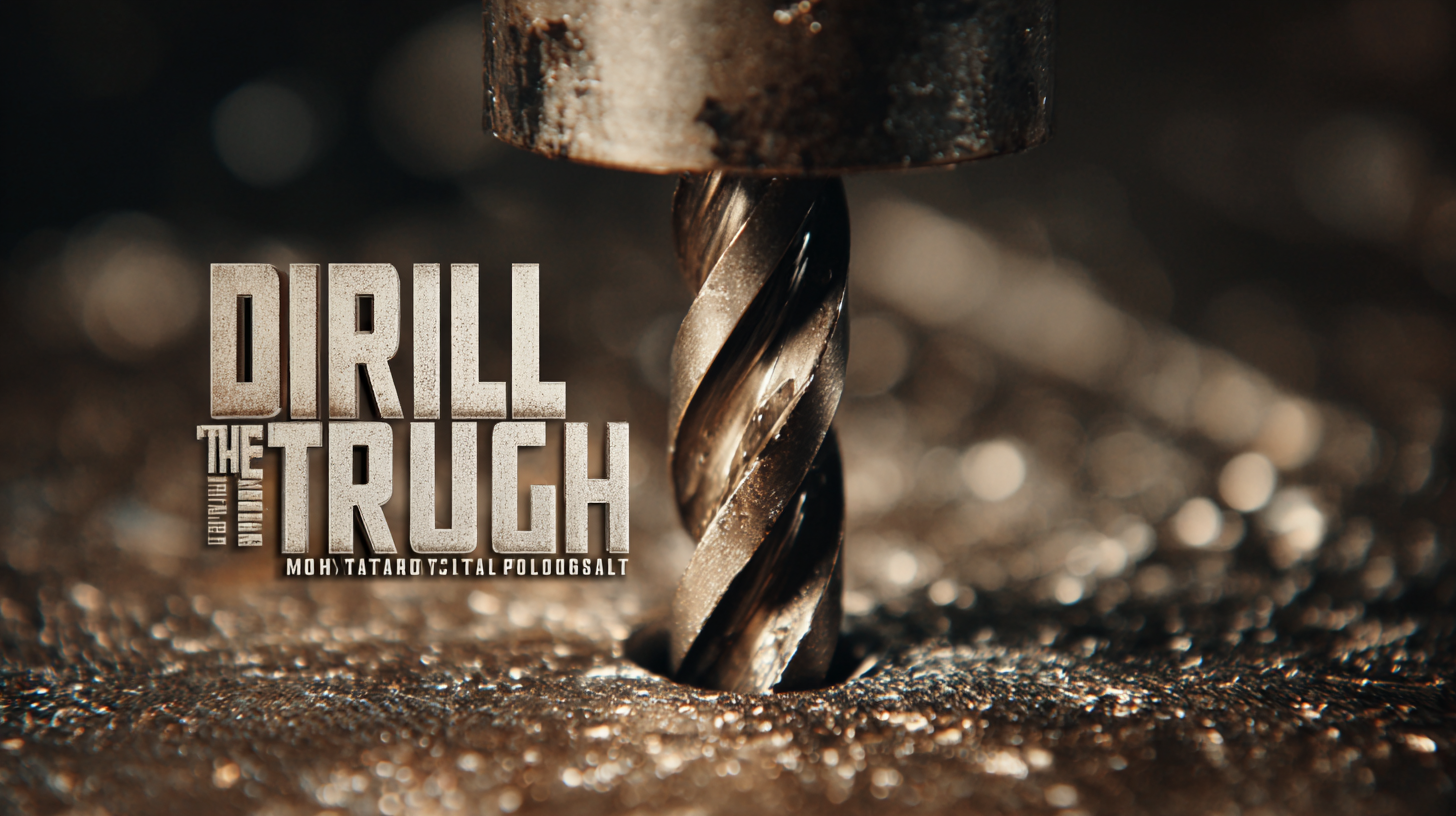FREE SHIPPING ON ALL BUSHNELL PRODUCTS
Leave Your Message
In the realm of industrial projects, the ability to efficiently and accurately drill through metal is paramount for ensuring structural integrity and operational efficiency. According to a recent report by the Metalworking Industry Association, approximately 70% of manufacturing firms identified metal drilling as a critical process that impacts production timelines and material waste management. The selection of the right drill bit for drilling through metal is crucial, as it not only determines the speed and precision of the task but also the overall costs associated with both materials and labor. With advancements in material technology and the evolution of tool design, understanding the nuances of various drill bits tailored for different metals has become increasingly essential for professionals in the industry. This blog aims to delve into the best options for drilling through metal, providing insights based on the latest trends and expert analyses to help you make informed decisions for your next industrial project.

When it comes to drilling through metal for industrial projects, choosing the right drill bit is crucial. The market offers a variety of metal drill bits, each designed to tackle specific materials and applications. For instance, high-speed steel (HSS) drill bits are commonly used for softer metals like aluminum and brass due to their durability and heat resistance. According to a recent industry report by Grand View Research, the global drill bit market is anticipated to reach USD 14.94 billion by 2025, which underscores the growing demand for high-quality metalworking tools.
Cobalt drill bits, containing up to 8% cobalt, excel in drilling harder metals like stainless steel and titanium. These bits are designed to withstand higher temperatures and maintain their cutting edge longer than standard HSS bits, making them a preferred choice in heavy-duty applications. Furthermore, carbide-tipped drill bits are renowned for their superior hardness and ability to drill through tough materials, particularly in the oil and gas industry, where durability is paramount. As stated by the Metal Industries Association, consistent advancements in drill bit technology are essential to meet the increasing demands of industrial sectors, hence driving innovations in drill material compositions and designs.
When it comes to drilling through metal in industrial applications, selecting the right drill bit is paramount. A comparative analysis reveals that High-Speed Steel (HSS), Cobalt, and Carbide drill bits each possess unique properties that cater to different requirements. According to a report by the International Journal of Advanced Manufacturing Technology, HSS bits are typically affordably priced and versatile, making them suitable for softer metals at lower speeds. However, their performance in harder materials can diminish quickly, leading to failures in demanding environments.

In contrast, Cobalt drill bits stand out for their resilience and heat resistance, ideal for drilling through tougher materials like stainless steel. A study from the American Society of Mechanical Engineers highlights that Cobalt blends allow these bits to withstand temperatures up to 1,100°F, making them conducive to high-speed drilling applications.
On the other hand, Carbide drill bits, while significantly more expensive, offer exceptional hardness and longevity, often utilized in specialized sectors where precision machining is crucial. A report from the National Institute of Standards and Technology suggests that using Carbide bits can improve efficiency in metalworking processes by as much as 30%, especially in high-volume industrial settings, emphasizing their value for production-level projects.
When it comes to drilling through metal for industrial projects, selecting the right drill bit is crucial for achieving efficiency and quality results. Different metal types—such as aluminum, steel, and stainless steel—require specific drill bits designed to handle their varying densities and properties. For instance, high-speed steel (HSS) bits are ideal for softer metals like aluminum, providing quick cuts and reducing the risk of overheating. On the other hand, cobalt drill bits are preferred for harder materials like stainless steel due to their higher resistance to wear and heat.
Additionally, factors such as the drill bit’s geometry and coating should be considered when choosing the right tool. Twist drill bits with a split point design can help penetrate harder metals more effectively by preventing walking during the initial contact. Coatings such as titanium or black oxide can further enhance the lifespan of the bits while allowing smoother cuts. Understanding the specific industrial application and the material being drilled is essential for selecting the optimal drill bit, ensuring that your projects run smoothly and efficiently.
When drilling through metal for industrial projects, employing correct techniques is essential to ensure precision and safety. Utilizing a drill press with a bushed fixture is an effective method, particularly when producing large quantities of holes that may not be perpendicular to the surface. This setup can enhance accuracy while reducing error rates, making it an ideal choice for repetitive tasks. Studies indicate that proper fixture alignment can improve drill life and reduce the risk of bit breakage in metalwork.

Moreover, selecting the right drill bit is paramount. Recent tests highlight that cobalt and carbide bits outperform traditional steel bits when drilling into harder metals, providing cleaner cuts and longer service life. Additionally, advancements in drilling technologies, such as microdrilling and gundrilling, have expanded capabilities for producing deep holes with precise diameters, which are pivotal in automotive and aerospace engineering. Such innovations can yield significant cost savings and efficiency improvements in industrial applications, as seen in the rising interest in integrating these techniques into routine operations across various sectors.
When it comes to drilling through metal in industrial projects, safety should always be a top priority. According to a report by the National Institute for Occupational Safety and Health (NIOSH), there are over 400,000 injuries each year in the manufacturing sector, with a significant percentage resulting from improper tool usage and lack of protective measures. To mitigate these risks, it's vital to implement essential safety practices when using metal drill bits.
First, always wear appropriate personal protective equipment (PPE), such as safety glasses, gloves, and ear protection. Additionally, ensure that the work area is well-ventilated to avoid inhalation of harmful metal shavings and fumes. When selecting a drill bit, choose one specifically designed for the type of metal you are working with, as this will not only enhance performance but also reduce the likelihood of accidents. According to the American National Standards Institute (ANSI), using the right tools can decrease injury rates by up to 30%.
Tip: Always check the drill bit for wear and tear before starting your project. A dull bit can lead to increased pressure and heat, raising the risk of tool failure and injury. Store drill bits properly to prevent damage, and ensure that they are sharp and ready for use to maintain efficiency and safety throughout your industrial tasks. Remember, safety is not just a precaution; it’s an integral part of productivity in any industrial setting.
| Metal Type | Recommended Drill Bit Type | Drill Speed (RPM) | Cooling Method | Safety Measures |
|---|---|---|---|---|
| Aluminum | Cobalt Twist Drill | 1500-2500 | Air or Water | Wear eye protection; use clamps |
| Steel | High-Speed Steel Bit | 500-800 | Oil or Cutting Fluid | Use ear protection; avoid loose clothing |
| Stainless Steel | Titanium Coated Bit | 300-700 | Water or Air | Ensure ventilation; use gloves |
| Copper | Cobalt or Carbide Bit | 1200-2000 | Cutting Fluid | Use face shield; maintain tool sharpness |
